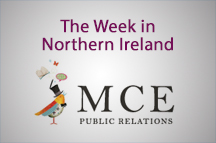 With the calling of the General Election, politics in Northern Ireland are on pause.
With the calling of the General Election, politics in Northern Ireland are on pause.
While the Prime Minister probably didn’t dwell too long on the Northern Ireland talks process before her decision to call a snap election on 8 June, this development may yet provide the time and space for the parties to reach agreement and see government restored at Stormont by the end of June.
The Northern Ireland Executive has not functioned properly since the resignation of the former deputy First Minister, Martin McGuinness back in January and following March’s Assembly election the local administration has not functioned at all.
Having already crashed through two deadlines since the Assembly election on 2 March it would have taken an eternal optimist to have assumed that just a few more weeks would have seen a deal done after Easter.
However, in one of its last measures before Parliament was prorogued, a Bill was passed to extend the time to form a new government until 29 June. This time the deadline is likely to hold and the parties will have to decide if they will cut a deal or see powers returned to Westminster.
First though is the small matter of a Westminster election that no one saw coming.
For some it will be a referendum on Brexit just a year after the referendum on Brexit, while for others this will be an opportunity to make the case for the Union with Great Britain and to regain ground lost in March. Elections in Northern Ireland are rarely about differences in economic policy.
One good thing is that resolving the difficult issues around Northern Ireland’s border with Ireland appears to be high up the list of priorities for the UK, Ireland and the EU. For now, the only voice not being heard on how to get the best deal for Northern Ireland is that of a local Executive!
No one is expecting big changes in Northern Ireland’s representation in the House of Commons after June 8, but a few seats here or there could make a huge difference to the mood music.
All eyes will be on the key battles within nationalism in South Down and Foyle where the SDLP are hoping to hold on, the unionist/nationalist battlegrounds of Belfast North and Fermanagh and South Tyrone, as well as the other marginals of Belfast South, Belfast East and South Antrim.
Last time round the UUP and SDLP, the smaller parties within each community, declined to take up their places in the Executive. The results in June may go a long way to determining whether they would re-enter any new Executive.
The election may not have a big impact of the formation of the next government at Westminster but could make a real difference as to whether there will be an Executive up and running at Stormont anytime soon.
Not for the first time in recent times, Northern Ireland’s political process is in crisis. The difference now is that it does not threaten the peace and the economic progress that has been made.
The election results and the three weeks after polling day will determine whether the local parties are back in charge or Mrs May will get to call the shots, not just on Brexit but on everything else in Northern Ireland as well. We won’t have long to wait.












